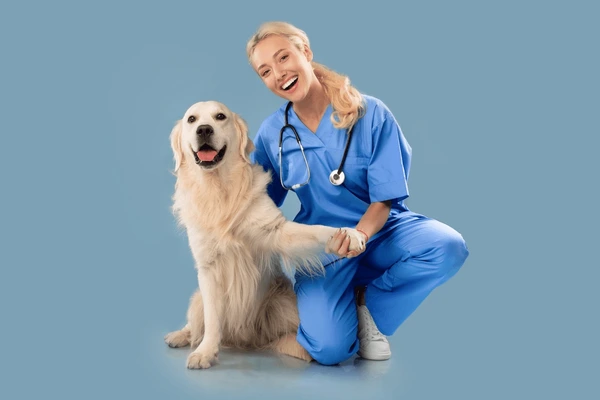Our pets are more than just animals; they are beloved members of our families. Ensuring their health and wellness is a fundamental responsibility of pet ownership. This guide will provide an in-depth look at various aspects of pet health, from nutrition and exercise to mental well-being and preventive care. Whether you have a dog, cat, bird, or exotic pet, this comprehensive article will help you understand how to keep your furry, feathered, or scaled friend happy and healthy.
1. Proper Nutrition for Pets
Importance of a Balanced Diet
A well-balanced diet is crucial for your pet’s overall health. It provides the essential nutrients necessary for growth, energy, and immune system support. Malnutrition can lead to obesity, digestive disorders, and weakened immune function.
Choosing the Right Food
Selecting the best food depends on factors such as age, breed, and specific health conditions. Some common categories include:
- Dry kibble: Convenient and cost-effective, but quality varies. Look for high-protein, grain-free options.
- Wet food: Higher in moisture, beneficial for hydration, and more palatable for picky eaters.
- Raw diet: Controversial but growing in popularity, often includes raw meats, bones, and organ meats.
- Homemade meals: Require careful planning to ensure balanced nutrition; consulting a vet or pet nutritionist is recommended.
Essential Nutrients
Pets require a mix of proteins, fats, carbohydrates, vitamins, and minerals. The right balance depends on species and individual health needs. Essential fatty acids help maintain healthy skin and coat, while antioxidants support immune function.
Foods to Avoid
Certain human foods are toxic to pets, including:
- Chocolate: Contains theobromine, toxic to dogs and cats.
- Onions and garlic: Can cause anemia and gastrointestinal distress.
- Grapes and raisins: Potentially cause kidney failure.
- Xylitol: Found in sugar-free gum and sweets, can lead to hypoglycemia.
- Alcohol and caffeine: Harmful to the nervous system and heart.
2. Exercise and Physical Health
Importance of Regular Exercise
Exercise helps maintain a healthy weight, strengthens muscles, and improves cardiovascular health. It also prevents behavioral problems linked to excess energy and boredom.
Exercise Recommendations by Pet Type
- Dogs: Daily walks, playing fetch, and agility training keep dogs active and engaged. Large breeds need more exercise than small breeds.
- Cats: Interactive toys, climbing structures, and laser pointers encourage movement and mental stimulation.
- Birds: Free-flight time in a safe space and mental stimulation through toys and social interaction.
- Small mammals: Running wheels, tunnels, and supervised exploration help keep them engaged.
3. Preventive Healthcare
Regular Veterinary Check-Ups
Routine vet visits help detect potential health issues early. Annual or bi-annual check-ups are recommended to monitor weight, dental health, and vaccinations.
Vaccinations
Vaccines protect pets from dangerous diseases. Core vaccinations for dogs and cats include:
- Dogs: Rabies, distemper, parvovirus, adenovirus.
- Cats: Rabies, feline leukemia, panleukopenia, calicivirus.
- Birds: Avian polyomavirus and other species-specific vaccines.
Parasite Prevention
Fleas, ticks, and worms can cause serious health issues. Preventive measures include:
- Monthly flea and tick treatments
- Regular deworming
- Maintaining a clean living environment
Dental Health
Poor dental hygiene can lead to gum disease and other complications. Dental care includes:
- Brushing teeth regularly with pet-safe toothpaste.
- Providing dental chews or treats to reduce plaque buildup.
- Scheduling professional cleanings to prevent periodontal disease.
4. Mental and Emotional Well-Being
The Role of Mental Stimulation
Mental stimulation prevents boredom and destructive behavior. Engaging pets in activities such as:
- Training sessions: Reinforce positive behavior and strengthen the bond between pet and owner.
- Puzzle toys: Stimulate cognitive abilities and keep pets entertained.
- Social interaction: Encourage playtime with other pets or regular bonding with owners.
Signs of Stress or Anxiety
Pets can experience anxiety due to changes in routine, loud noises, or separation. Signs include excessive barking, chewing, hiding, or aggression. Solutions include:
- Behavior training: Reinforcing positive behavior through consistency.
- Calming aids: Such as pheromone diffusers, anxiety vests, or music therapy.
- Stable environment: Reducing sudden changes in routine and providing safe spaces.
5. Grooming and Hygiene
Grooming Basics
Regular grooming keeps pets clean and prevents health issues. Requirements vary by breed and species.
- Dogs: Brushing, bathing, nail trimming, and ear cleaning. Long-haired breeds require frequent brushing to prevent matting.
- Cats: Brushing (especially for long-haired breeds), nail trimming, and dental care. Self-grooming does not replace brushing.
- Birds: Beak and nail trimming, feather maintenance, and cage cleaning.
- Small animals: Cage cleaning, fur brushing, and odor control to maintain hygiene.
6. Special Considerations for Different Pets
Dogs
- Require regular training and socialization to prevent behavioral problems.
- Thrive on a consistent routine for meals, exercise, and rest.
- Benefit from regular vet checkups and preventive care.
Cats
- Need scratching posts to maintain healthy claws and prevent furniture damage.
- Enjoy perches and hiding spaces to feel secure in their environment.
- Can develop obesity if overfed, so portion control is essential.
Birds
- Thrive with companionship, mental stimulation, and interaction.
- Require a proper diet including seeds, pellets, fresh produce, and cuttlebones.
- Need frequent cage cleaning and fresh water.
Reptiles
- Require specific temperature and humidity conditions to thrive.
- Need UVB lighting for vitamin D synthesis and proper calcium absorption.
- Should be fed species-appropriate diets, including live prey or fresh greens.
Conclusion
A pet’s health and wellness depend on a combination of proper nutrition, regular exercise, preventive healthcare, and emotional well-being. By providing a loving, attentive environment, pet owners can ensure their companions live long, happy, and healthy lives. Taking the time to learn about and cater to your pet’s specific needs will strengthen the bond between you and your furry, feathered, or scaled friend.
Frequently Asked Questions (FAQ)
How often should I take my pet to the vet?
Annual check-ups are recommended for most pets. Older pets or those with medical conditions may require more frequent visits.
What are signs of illness in pets?
Common signs include loss of appetite, lethargy, vomiting, diarrhea, excessive scratching, or changes in behavior.
How can I help my pet maintain a healthy weight?
Providing balanced nutrition, portion control, and regular exercise are key to maintaining a healthy weight.
What is the best way to prevent fleas and ticks?
Use vet-approved flea and tick treatments, keep your pet’s environment clean, and groom regularly to check for infestations.
Can I feed my pet human food?
Some human foods are safe, but many can be toxic. Always research or consult a vet before sharing human food with your pet.

